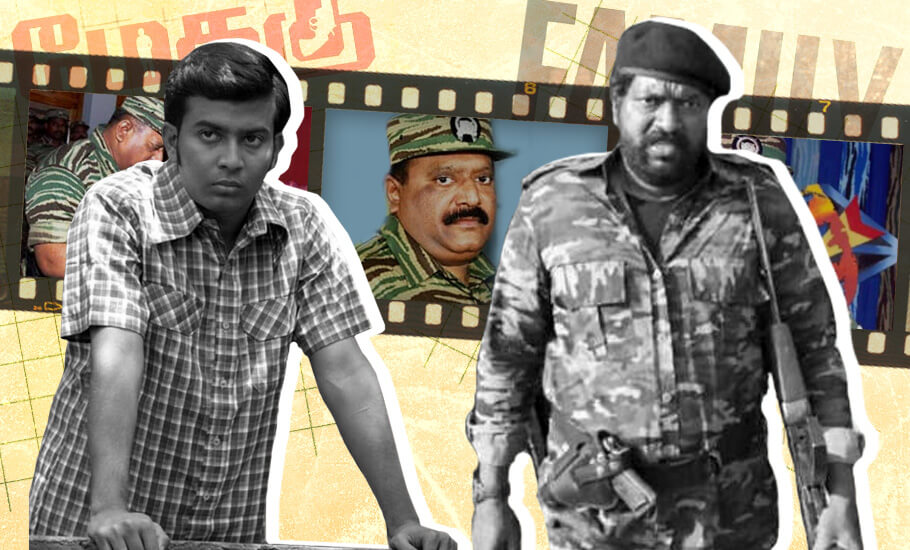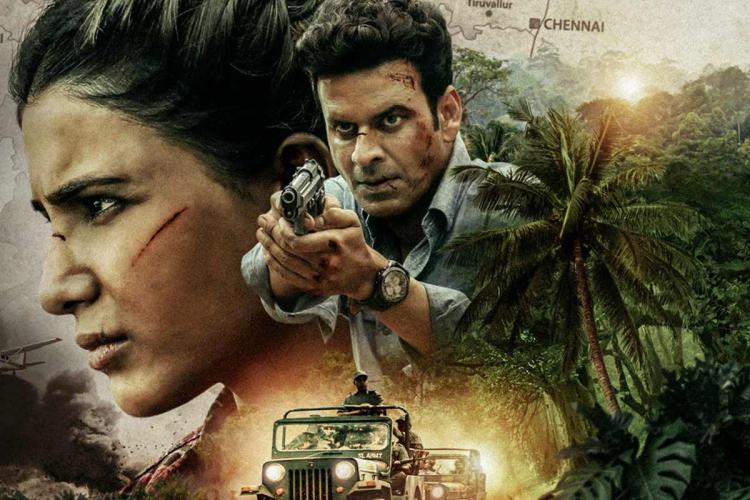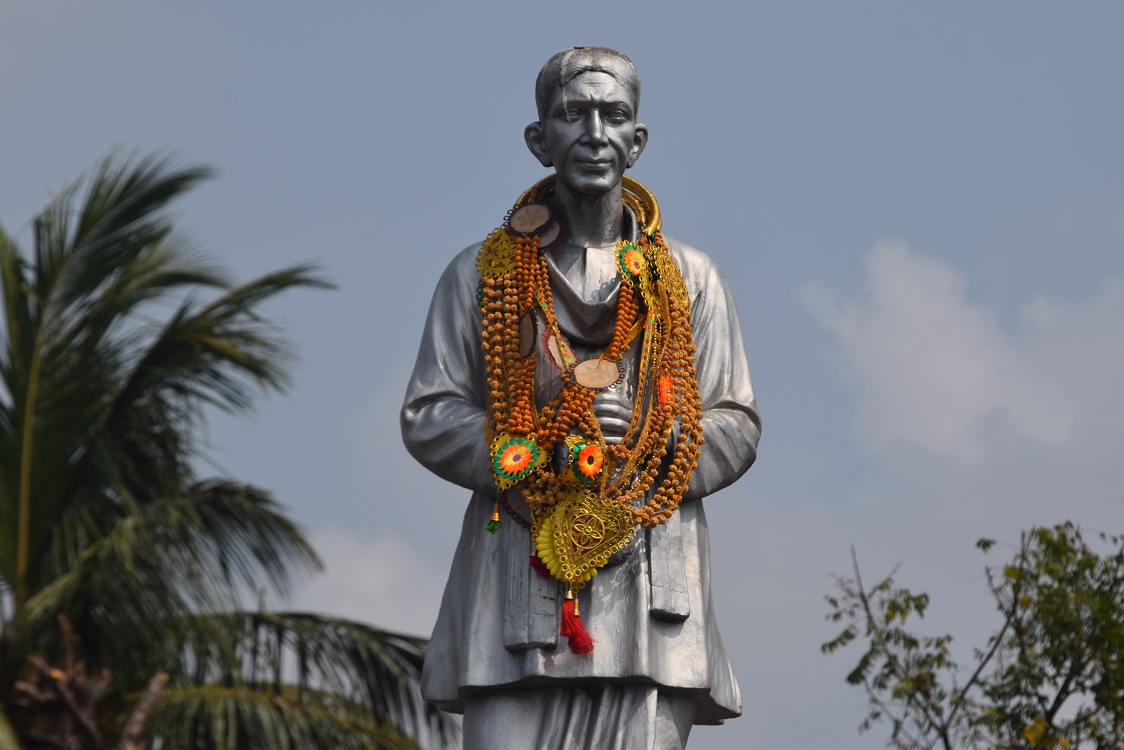
- Home
- India
- World
- Premium
- THE FEDERAL SPECIAL
- Analysis
- States
- Perspective
- Videos
- Sports
- Education
- Entertainment
- Elections
- Features
- Health
- Business
- Series
- In memoriam: Sheikh Mujibur Rahman
- Bishnoi's Men
- NEET TANGLE
- Economy Series
- Earth Day
- Kashmir’s Frozen Turbulence
- India@75
- The legend of Ramjanmabhoomi
- Liberalisation@30
- How to tame a dragon
- Celebrating biodiversity
- Farm Matters
- 50 days of solitude
- Bringing Migrants Home
- Budget 2020
- Jharkhand Votes
- The Federal Investigates
- The Federal Impact
- Vanishing Sand
- Gandhi @ 150
- Andhra Today
- Field report
- Operation Gulmarg
- Pandemic @1 Mn in India
- The Federal Year-End
- The Zero Year
- Science
- Brand studio
- Newsletter
- Elections 2024
- Events
- Home
- IndiaIndia
- World
- Analysis
- StatesStates
- PerspectivePerspective
- VideosVideos
- Sports
- Education
- Entertainment
- ElectionsElections
- Features
- Health
- BusinessBusiness
- Premium
- Loading...
Premium - Events

Why Tamil film Methagu is more than just about LTTE chief Prabhakaran
Most films on Sri Lankan Tamils have fallen into the stereotyping trap. It is against this backdrop that Methagu, made by debutant director T Kittu on LTTE leader Velupillai Prabhakaran, assumes special significance.

“Our motherland was wrested from us. Our historical roots have been severed. Our voice was cut off due to the imposition of another language. Many lost their livelihoods and fled to other countries. Pregnant women were killed in fear of rising numbers of Tamil population. The ashes of our murdered youth have become street dust. We turned red. And then was born Prabhakaran. And then was born...
“Our motherland was wrested from us. Our historical roots have been severed. Our voice was cut off due to the imposition of another language. Many lost their livelihoods and fled to other countries. Pregnant women were killed in fear of rising numbers of Tamil population. The ashes of our murdered youth have become street dust. We turned red. And then was born Prabhakaran. And then was born the Liberation Tigers. Tamil Eelam turned into fire.”
Kaasi Anandan, a Sri Lankan Tamil poet and an ardent supporter of the Liberation Tigers of Tamil Eelam (LTTE), writes the above lines in the introduction of Pazha Nedumaran’s book ‘Tamil Eelam Sivakkiradhu’, explaining why the much-feared guerrilla force came into being.
The 30-year-long civil war between Tamil rebels and the Sinhalese-dominated Sri Lankan forces inflicted wounds that continue to fester years after the conflict ended. The aftermath of the war, however, also triggered a number of creative works in popular culture.
But most such works have fallen into the stereotyping trap.
It is against this backdrop that Methagu, made by debutant director T Kittu and released on OTT platform BS Value, assumes special significance.
Lankan Tamils in films
Films in Sri Lanka almost always look at issues from the Sinhalese point of view, leaving little scope for the Tamil perspective. In India, there have been a number of Tamil films that featured Lankan Tamils in various characters. Sometimes as the leading lady (Punnagai Mannan, 1986), sometimes as a comedian (Thenali, 2000), in other times as refugees (Kaatrukkenna Veli and Nandha, both in 2001), as rebels (Kuttrapathirikai 2007), a gangster (Billa II, 2012) and also a police officer (Maasu Engira Masilamani, 2015).
There have been films that have tried to touch upon the subject but with a few dialogues—for example: Aayirathil Oruvan in 2010 and 7aum Arivu in 2011—even though these films had no significant connection to Lankan Tamils.

There are at least a half a dozen films on Lankan Tamils that are yet to get certification from the Indian censor board because it fears the storyline may affect the bilateral ties between India and Sri Lanka.
The reactions from the Indian side have been so guarded that it has now become almost acceptable that the issues concerning Lankan Tamils are only a ‘masala’ element to spice up Kollywood films.
Family Man 2 and Jagame Thandhiram
Two recent works, one from Bollywood and another from Kollywood, have once again brought to the fore the Lankan Tamil question.
However, the treatment this time as well is not far from the usual tropes sold to an equally nonchalant audience. Family Man 2, an Amazon Prime web series starring Samantha Akkineni as a Lankan rebel fighter, is more about how a team of Indian intelligence officers, led by Manoj Bajpayee, thwarts attempts by the rebels to kill the Indian Prime Minister, in what appears to be based on the killing of former Prime Minister Rajiv Gandhi.
The limited understanding of Bollywood when it comes to the Tamil cause becomes quite evident with the stereotyped portrayal — as if all Lankan Tamils are either rebels or members of sleeper cells while the women are ready to have sex in exchange for money and other benefits.
While Family Man 2 sticks to the negative stereotyping of the Lankan Tamil as rebels, the recent Tamil film, Jagame Thandhiram, starring Dhanush, goes one step ahead and shows refugees abroad as smugglers.
It kind of insinuates that Tamils who moved out of Sri Lanka and went abroad are mostly working as henchmen and smugglers. At one point, they are referred to as “Puligal” (Tamil for Tigers) and in another, the head of the smuggling group tells the protagonist to call the group as ‘iyakkam’ (Tamil for movement) instead of ‘organisation’.
Then enters Methagu. The recently released movie depicting the early years of the LTTE chief has already created ripples, as expected.

Methagu and Prabhakaran before LTTE
The history of Sri Lanka’s civil war cannot be written without two names—Samuel James Velupillai Chelvanayakam or Thanthai (Father) Chelva and two, Veluppillai Prabhakaran or Methagu (His Excellency) Prabhakaran. While the former fought for the rights of Lankan Tamils in a non-violent way, the latter resorted violence. Methagu does justice to both.
The film traces the life of Prabhakaran since his birth in 1954 till 1975, the year he assassinated Jaffna Mayor Alfred Duraiappah, which is considered the first political assassination in the island nation. The film’s narration resembles Motorcycle Diaries, which traces the travels of Che Guevara through South America before he became the person we know today.
Based on the therukoothu (street play) approach, the film initially goes on to show Tamils as the original inhabitants of Sri Lanka and the Sinhalese as a mix of several languages, including Tamil. It also shows the emergence of Buddhism, which the Tamils did not embrace—becoming a cause for friction between the Sinhalese and Tamils. It then introduces Prabhakaran, somewhat as a legendary figure.
Born with three siblings in Valvettithurai, Prabhakaran was quite pampered. In 1958, his family suffered violent racist attacks. Then in 1968, the then prime minister Dudley Senanayaka brought educational reforms that wrested opportunities from Tamil youths. These incidents had a huge impact on Prabhakaran.
In 1972, he launched the Tamil New Tigers. 1974 saw the launch of the fourth World Tamil Research Conference during Sirimavo Bandaranaike’s regime. However, the government raided the conference. In subsequent police action, 11 people were killed.
It’s at this juncture, the movie goes on to show, that Prabhakaran realises that he needs to turn to violence. The film ends with the killing of Duraiappah by Prabhakaran.
Interestingly, Prabhakaran’s character isn’t prominent until the end. Instead, it shows Thanthai Chelvam, a follower of Gandhi who practices the non-violence, leading the Tamils’ fight against the Sinhalese atrocities.

The two-hour long film also doesn’t have any known names, songs, daring action sequences or emotional overdose.
The rather fresh cast does a commendable job. It is claimed that except one or two professional actors, all others have not charged even a single paisa for their work.
Of course, the film is not perfect in every sense. There are some errors. For example, it shows Prabhakaran leaving the house once and for all before killing Duraiappah. But in reality, Prabhakaran left home only a day after the assassination.
Making of a hero
Many noted names in Tamil tinseltown have time and again bragged about their meetings and the proximity with Prabhakaran. They also announced plans to make a movie on the rebel leader. But no one has done anything so far.
Methagu is the first and most important film about Prabhakaran that throws enough light on one of the most important figures in Lankan struggle.
The filmmakers, however, do fall into the trap of eulogising him by keeping out any negative attributes of the famed leader and building a hype through its therukoothu narrative, thereby projecting a larger than life character on the viewers.
On the other hand, director Kittu says filmmakers are always pushed to do commercial films and make compromises.
“Only after they attain a star value, directors bring their political views into their films,” he says.
He also points to the Centre’s new rule which says that hereafter there should not be any reference to the Lankan civil war in Indian films, which affects the filmmakers’ freedom.
Advocate and writer KS Radhakrishnan, who had a close association with Prabhakaran once, says on social media that while the first part is fine, directing a sequel will be tough.
“The first part deals only with Prabhakaran. But in the sequels, there will be references about rebels both alive and dead. That involves many risks,” he says.
Journalist Tamil Kanal, who had followed the civil war for many years, says the LTTE was always centred around Prabhakaran and all the decisions were taken only by him.
“The fellow rebel groups were somewhat democratic and had cooperative leadership,” he says.
History, Kanal adds, has allocated space for some extraordinary people like Gandhi, Nelson Mandela, Hitler, etc. “Prabhakaran too has a place. And that fact cannot be neglected.”
